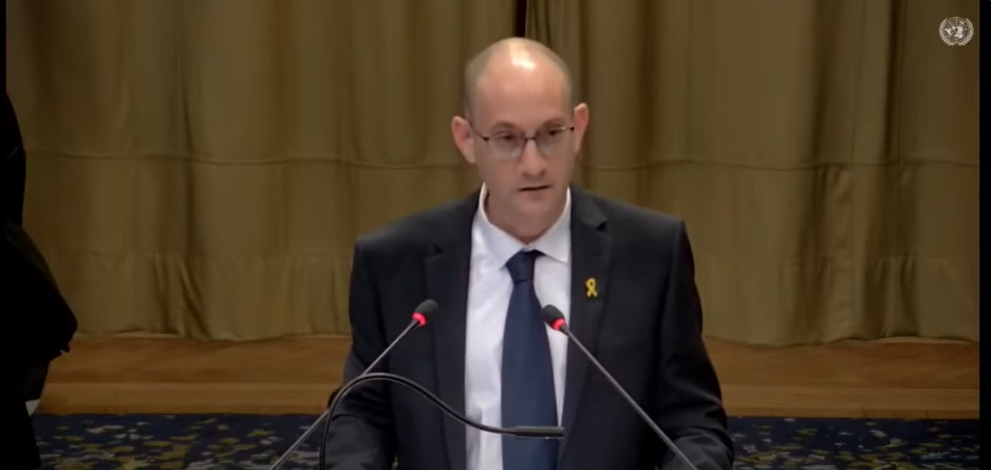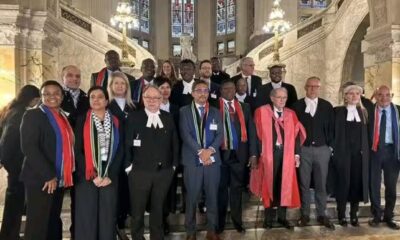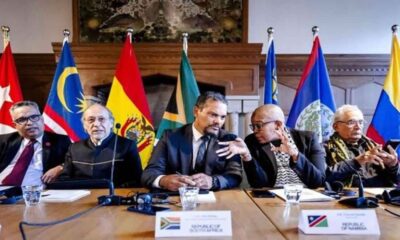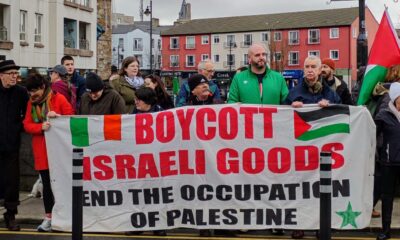
News

ICJ again muddies the waters in Rafah ruling
For the fourth time in five months, South Africa has taken Israel to the International Court of Justice (ICJ) under the Genocide Convention yet emerged with an ambiguous order that allows both sides to believe that they have won. This time, South Africa was asking the court to order Israel to stop its military operations in Rafah in southern Gaza.
It’s hard to believe that the wording is deliberately vague from a professional body like the ICJ, but it has permitted both parties to spin the judgment to their advantage. The victory is hollow, and incentivises South Africa to relitigate this case in the future.
Here’s the wording the ICJ used: “The court considers that in conformity with its obligations under the Genocide Convention, Israel shall immediately halt its military offensive, and any other action in the Rafah Governorate, which may inflict on the Palestinian group in Gaza conditions of life that could bring about its physical destruction in whole or in part.”
Mark Oppenheimer, an advocate at the Johannesburg Bar, told the SA Jewish Report, “The ambiguity is whether Israel is required to halt its military offensive in Rafah entirely or whether its military offensive is limited in that it may not, during the course of that offensive, destroy the Palestinian group ‘in whole or in part’. This ambiguity is reflected in the separate judgments of the court. Judges Georg Nolte, Julia Sebutinde, Bogdan Aurescu, and Aharon Barak all point out that there’s an ambiguity that must be interpreted in such a manner that does not lead to a full halt of Israel’s military offensive in Rafah. However, Judge Dire Tladi, from South Africa, takes the contrary view – that the court’s order implies that the offensive must be stopped in its entirety.
“What’s puzzling about the situation is that all of the judgments would have been known to the whole court before publication, and it would have been open to the majority of the court to have resolved the ambiguity in one direction or the other. However, in light of the court’s prior decision barring a ceasefire, it’s reasonable to interpret the latest order as not requiring a ceasefire in Rafah now.”
On the other hand, Tladi said: “Today, the court has, in explicit terms, ordered the state of Israel to halt its offensive in Rafah. The court has previously, albeit in implicit and indirect ways, ordered the state of Israel not to conduct military operations elsewhere in Gaza because such operations prevent the delivery of human assistance and cause harm to the Palestinian people.”
The South African government is also in no doubt. At an election rally in Soweto on 25 May, President Cyril Ramaphosa said: “There must be an immediate ceasefire in Gaza, particularly following the decision of the ICJ, after South Africa approached the court again. It has now ruled that yes, Israel must stop the attack against the people of Palestine in Rafah, in Gaza.”
The court’s order prompted Oren Marmorstein, Israel’s foreign affairs ministry spokesperson, to publish on X a joint statement with the head of Israel’s national security council. It called South Africa’s charges “false, outrageous, and morally repugnant”.
Echoing the United Nations (UN) Genocide Convention’s language of “in whole or in part”, the statement said, “Following the horrific attack against the citizens of Israel on 7 October 2023, Israel embarked upon a defensive and just war to eliminate Hamas and to secure the release of our hostages … Israel has not and will not conduct military actions in the Rafah area which may inflict on the Palestinian civilian population in Gaza conditions of life that could bring about its physical destruction in whole or in part. Israel will continue its efforts to enable humanitarian assistance and will act, in full compliance with the law, to reduce as much as possible harm caused to the civilian population in Gaza.”
The ICJ also ordered Israel to open the Rafah crossing, but it’s closed on the Egyptian side, a fact over which Israel has no control. It called for Israel to allow fact-finding and other UN missions unhindered access to Gaza. Given the well-established UN bias against Israel, it won’t be enthusiastic about this element. Finally, the ICJ requires Israel to produce a monthly report on the situation, which Israel has already been producing.
Israel’s compliance with international law hasn’t been helped by wild statements by right-wing cabinet ministers calling for the destruction of the Gaza Strip and the cessation of all aid.
Israeli lawyer Yuval Oz wrote in the Times of Israel: “This isn’t the first time in history that judges whose opinions differ try to find a form of compromise that everyone can agree on … But in the present case, an unacceptable situation was created in which the compromise brought about such a vague text that each side is now reading it as it wishes.”
The bottom line is that Israel will push forward in Rafah.










